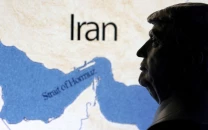The geopolitics of Gaza
3rd phase of Arab Spring is currently playing out with Saudi Arabia & Egypt squeezing out forces of upheaval in region

Regional developments that have blown the winds of change and instability from North Africa to Bahrain are responsible for the lack of pressure on Israel from Egypt and Saudi Arabia. When the Arab Spring began, a wave of idealism swept over the region and caught the incumbent forces off guard. In this first phase of the Arab Spring, huge rallies were witnessed, despots in a few countries were overthrown, and populations led by idealistic youths could sense a better and more democratic future. This optimism quickly faded in the second stage of the Arab Spring as diverging interests and ideologies battled for power and after coming to power, were unable to rule. The lack of governmental experience and internal rifts led to a worsening of economic conditions and dampened the optimism visible in the earlier stages of the movement. Egypt, being the most populous country in the region, had sent tremors across the Middle East when Hosni Mubarak was overthrown in the first phase. A democratically-elected government led by Mohamed Morsi was the litmus test for the Arab Spring and as the Muslim Brotherhood floundered and became more authoritarian, the status quo began to reassert itself. In the third stage of the Arab Spring, the status quo hit back and once again Egypt was in the eye of the storm. Morsi was overthrown in what can be described as a ‘soft coup,’ and the military, supported by generous funding by Saudi Arabia, came back to power.
When the Muslim Brotherhood was thrown out of power by the Egyptian military, the Gulf states, particularly the UAE, cracked down on the organisation as well. Designated a terrorist group, the crackdown virtually destroyed the organisational capacity of the Brotherhood in the entire Middle East. The last bastion of the Brotherhood was Hamas and to squeeze the organisation, the Egyptian military quickly sealed the borders and put an end to the illegal trade that had given some respite to Palestinians in the face of Israeli blockades. Recognising this alignment of interests, the Egypt-sponsored ceasefire was quickly approved by the Israeli cabinet, supported by Saudi Arabia, and rejected by Hamas since it was not even consulted on the conditions of the agreement. The Egyptian media, subsequently, took an anti-Hamas position, and has accused the group of plotting to destabilise the region. Security on the Egypt-Gaza border has been tightened, tunnels that could have brought humanitarian relief to people in Gaza have remained shut and diplomatic pressure on Israel has been kept to a minimum. All of this emboldened Israel, whose prime minister at that stage called up an additional 16,000 reserve soldiers and vowed to continue the military operation until Hamas is defeated.
This third phase of the Arab Spring is currently playing out, with Saudi Arabia and Egypt squeezing out the forces of upheaval in the region. Qatar, which has backed the Muslim Brotherhood and Hamas, is isolated and lacks any political partners in the region. Iran and Hezbollah, which have typically come to the support of the Palestinians, are occupied in Syria, where they are propping up a despot and fighting extremist Sunni militias. Given these regional dynamics, the Israeli attack on Gaza could not have come at a more opportune time for the status quo forces in the region. Israel had an opportunity to deal a deathly blow to Hamas’s infrastructure in Gaza without fear of major repercussions.
The Arab Spring and the early popularity of radical movements led to a strategic shift in the mindset of the status quo forces in the Middle East. When the United States quickly disowned Mubarak, these forces recognised that future uprisings could lead to their removal as well. To prevent such an outcome, countries became more authoritarian and sought to quash any future opponents. Israel might be a country that regional powers dislike, but the immediate threat has been political Islam. Recognising this scenario, Egypt and Saudi Arabia have turned a blind eye to the plight of the Palestinians in Gaza as long as the ensuing violence cripples Hamas for the foreseeable future. In 1973, when the Yom Kippur War broke out, Shah Faisal and Anwar Sadat made an unprecedented decision to use oil as a weapon and enforce an oil embargo. Today, the successors of these two rulers are siding with a country that has brutally attacked Palestinians trapped in an open-air prison. This, in and of itself, is a sign of how things have changed in the Middle East since the Arab Spring.
Published in The Express Tribune, August 7th, 2014.
Like Opinion & Editorial on Facebook, follow @ETOpEd on Twitter to receive all updates on all our daily pieces.



















COMMENTS
Comments are moderated and generally will be posted if they are on-topic and not abusive.
For more information, please see our Comments FAQ